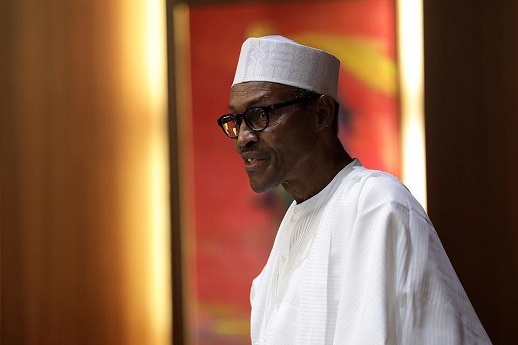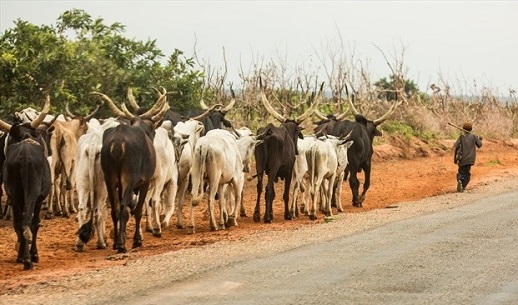
The Nigerian National Human Rights Commission (NHRC) has called on President Muhammadu Buhari to put an end to the ongoing deadly attacks committed by suspected Fulani herdsmen in southern Kaduna.
Nigeria’s Middle Belt, which includes Kaduna, Nasarawa, Taraba, Benue & other states, is the scene of attacks on Christian farmers (often called indigenes) by mainly Muslim Hausa-Fulani herdsmen.
“It has become imperative for the security forces to act fast to put a stop to these callous acts with regards to the frequency of the attacks in Southern Kaduna and other parts of the country by suspected herdsmen,” urged the NHRC on 28 December.
The attacks, which have claimed hundreds of lives, have affected mainly the central states of Plateau, Nasarawa, Taraba and Benue but also the more northern state of Kaduna. Southern Kaduna has been particularly targeted, with attacks occurring almost on a weekly, or even daily basis recently. The violence reached a peak over Christmas, prompting local authorities to declare a 24-hour curfew from 22 December in three Local Government Areas (LGAs): Jema’a, Kaura and Sanga.
The NHRC said: “The time has come for the government and security agencies to ensure effective protection of lives and properties of defenceless Nigerians, who are victims of incessant attacks by suspected herdsmen.”
Southern Kaduna, made up of eight LGAs – Sanga, Jema’a, Kaura, Jaba, Zangon Kataf, Kagarko, Kachia and Kauru – is predominantly Christian; the worst hit LGAs are Jema’a, Kaura, Sanga and Kauru.
Church groups in northern Nigeria have condemned the killings, which they say are aimed at wiping out the Christian presence in the region.
Data from the Catholic Diocese of Kafanchan (Kaduna’s fourth city, in Jem’aa LGA) shows 808 people have lost their lives from 2011 until the end of 2016. Fifty-seven others have been injured in attacks on 53 villages.
The Diocese says dozens of properties have been destroyed, including 16 Churches, 1,422 houses, 19 shops, one primary school and five cars. A conservative estimate of farmlands destroyed and food stuff burnt is estimated at 5.5 billion Naira (about $17.5m).

World Watch Monitor
On 10 December, the Catholic bishops of Kaduna had denounced the ongoing “bloodshed” in southern Kaduna.
“In the last weeks and months, we have become victims of systematic attacks orchestrated by another version of Boko Haram, who also go by the name ‘Fulani Herdsmen’,” they wrote.
“This militia, of the Fulani extraction, is bent on pursuing an agenda that is aimed at subjugating the southern Kaduna people, disintegrating the country, weakening the Gospel and grounding completely the social and economic life of our people.
“Southern Kaduna is no stranger to violence, perpetrated against it by jihadists”, they added, saying the first known recorded violence of a large scale dates back to 1987, “when a group of Muslim youths unleashed violence on Christians during a ‘Revival meeting’ organised by the Christian students of the College of Education, Kafanchan. The charge was that a pastor was quoting from the Bible and the Qur’an to press home his point…
“The events of the past weeks and months…further confirm that there is a hidden agenda targeted at the Christian majority of southern Kaduna. This jihad is well-funded, well-planned and executed by agents of destabilisation”.
The clerics also denounced the government’s “biases” in handling the crisis.
“If anything, the government has shown outright partisanship in favour of the herdsmen, to the disappointment of the majority of southern Kaduna indigenes and Christians,” they wrote.
They also criticised the inertia of the security forces: “In most of these attacks, the military stands aloof and watches while our people are being massacred. The viciousness of these self-styled jihadists sends shivers into the spines of our traumatised people.
“In the Godogodo and Pasakori attacks for example, the military merely watched and supervised the burning of our homes. When the youth mobilised to repel the attackers, the soldiers deliberately blocked them from entering the town.”
The bishops pointed also to the level of sophistication of weapons, including AK47s, used by the militiamen.
CAN declares 8 January day of national mourning
The President of the Christian Association of Nigeria (CAN), the largest umbrella group of Christians, has said 8 January will be a national day of mourning, including for the Nigerian diaspora. On 30 December, Rev. Dr. Samson Ayokunle said: “We are to pray fervently for our southern Kaduna brothers and sisters who are victims of these wanton killings…
“Though the Church in Nigeria since 2009 has been subjected to a systemic genocide and persecution through… Islamic fundamentalists Boko Haram, leading to the killing of thousands of Christians and the destruction of hundreds of churches and over 50,000 houses, the current unprecedented onslaught against Christians in southern Kaduna by Islamic fundamentalists disguising as Fulani herdsmen under the watch of the Kaduna state Governor and the President has reached an alarming stage.”